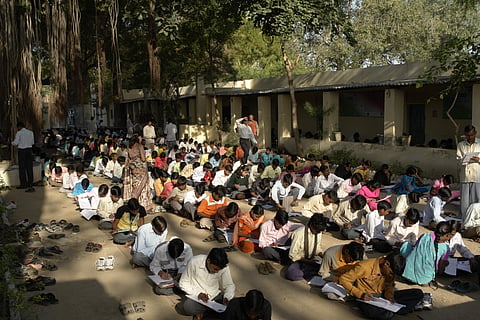

Nearly two decades ago Satpal,
A salesman at a retail outlet,
Santhoshi Kumari, a
“A lot of parents are getting
According to the National
Last month the state
Earlier this year the
Even as more and more parents
Calling the switch in the
"The child comes from an
Chukka Ramaiah agrees that as
Citing examples of countries like China and Finland where their local languages are the medium of instruction in school Prof Haragopal suggest that it would serve students better if English as a medium of instruction is introduced in secondary level. "There is also a need to discuss language policies and to debate on what the medium of instruction means," he added.
